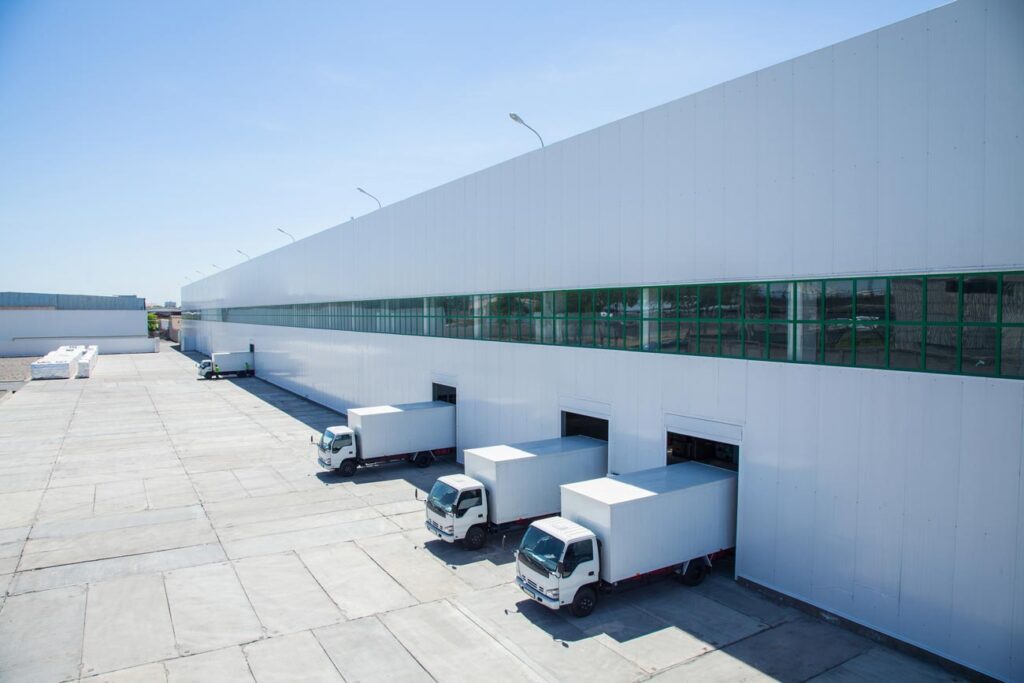
In the ever-evolving world of commercial real estate, industrial properties are emerging as a hot commodity, driven by shifts in global commerce, sustainability goals, and technological advancements. Whether you’re a Tenant seeking efficient space, a Landlord looking to optimize your property portfolio, or an Investor aiming to capitalize on market trends, understanding the current landscape is crucial. In this post, we explore the latest trends in selling and leasing industrial properties, offering valuable insights for all stakeholders in this thriving sector.

1. E-Commerce Surge Boosting Industrial Demand The rise of e-commerce is significantly impacting industrial real estate, increasing the demand for warehouses and distribution centers. Tenants require spaces that support efficient logistics, while Landlords are seeing a spike in leasing inquiries. For Investors, this trend presents lucrative opportunities in strategically located industrial properties catering to the e-commerce boom.
2. Sustainability Becoming a Priority Sustainable industrial spaces are increasingly appealing to Tenants who prioritize eco-friendly operations. Landlords who invest in green certifications and energy-efficient upgrades are likely to attract premium Tenants. Meanwhile, Investors are finding that sustainability-focused properties yield higher returns and long-term value.
3. Leasing vs. Purchasing Trends Flexibility is crucial for modern Tenants, many of whom prefer leasing over purchasing to accommodate fluctuating market demands. This trend benefits Landlords, as it increases occupancy rates and shortens vacancy periods. For Investors, focusing on lease agreements can provide stable cash flows and reduce risks associated with property ownership.
4. Technological Advancements in Industrial Spaces The adoption of smart technologies, such as automated storage and retrieval systems (ASRS), is reshaping the expectations of Tenants. Properties featuring these innovations are in high demand. Landlords investing in technological upgrades can command higher rents, while Investors see these properties as future-proof assets in a competitive market.
5. Urban Industrial Properties Gaining Popularity With the growth of urban centers, Tenants are seeking industrial spaces closer to city hubs for quicker deliveries. Landlords with properties in urban areas are capitalizing on this demand. For Investors, urban industrial real estate offers significant potential for appreciation, driven by limited supply and high demand.
The industrial real estate landscape is evolving, with trends driven by e-commerce, sustainability, and technological advancements. As experienced brokers, we provide Tenants, Landlords, and Investors with expert guidance to navigate these changes. Whether you’re looking to lease, sell, or invest, our team is ready to connect you with the best opportunities in the market. Contact us today to stay ahead in the dynamic industrial property sector.
RELATED ARTICLES
© 2016-2025 SharpLine® All rights reserved.
| Cookie | Duration | Description |
|---|---|---|
| cookielawinfo-checkbox-analytics | 11 months | This cookie is set by GDPR Cookie Consent plugin. The cookie is used to store the user consent for the cookies in the category "Analytics". |
| cookielawinfo-checkbox-functional | 11 months | The cookie is set by GDPR cookie consent to record the user consent for the cookies in the category "Functional". |
| cookielawinfo-checkbox-necessary | 11 months | This cookie is set by GDPR Cookie Consent plugin. The cookies is used to store the user consent for the cookies in the category "Necessary". |
| cookielawinfo-checkbox-others | 11 months | This cookie is set by GDPR Cookie Consent plugin. The cookie is used to store the user consent for the cookies in the category "Other. |
| cookielawinfo-checkbox-performance | 11 months | This cookie is set by GDPR Cookie Consent plugin. The cookie is used to store the user consent for the cookies in the category "Performance". |
| viewed_cookie_policy | 11 months | The cookie is set by the GDPR Cookie Consent plugin and is used to store whether or not user has consented to the use of cookies. It does not store any personal data. |